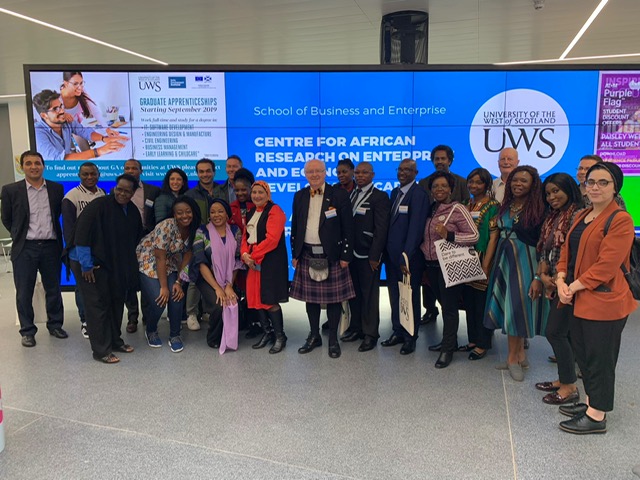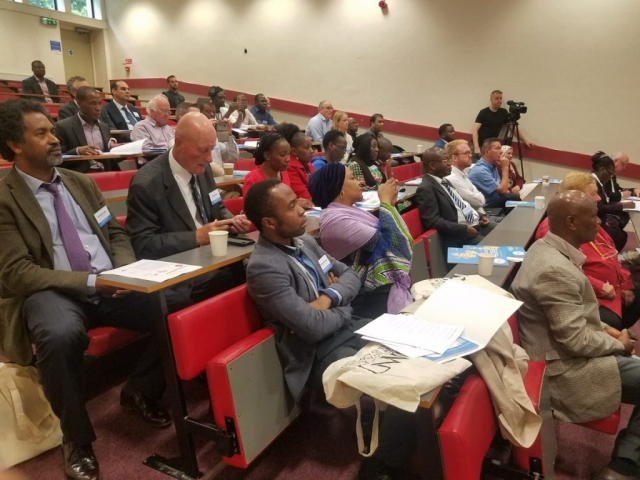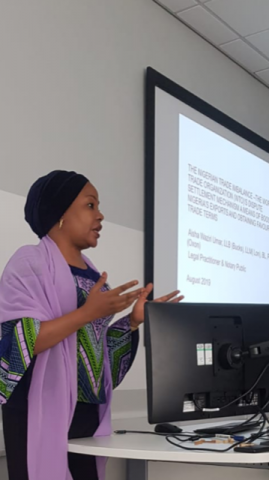The founder of Inara Foundation Mrs. Aisha Umar was invited to speak at CAREED conference at University of West Scotland. The University recently hosted the fourth Annual Centre for African Research on Enterprise and Economic Development (CAREED) Conference within the School of Business and Enterprise.
The conference, which was delivered at the Paisley Campus over the 29th and 30th August, saw over 70 delegates in attendance from a range of African countries represented as well as those based within the UK.
With a key focus on overcoming the challenges encountered in enterprise and economic development in Africa, the programme saw 39 papers presented across four major tracks: African Enterprise; African Economic Development Issues; Governance and Institutions; and Logistics and Supply Chain.
The programme also included the annual ‘Africa Debate’ where attendees were involved in an interactive discussion surrounding the key challenges and opportunities facing African economic development in the years to come; and a workshop which focused on the role of Diaspora and NGO organisations in Africa’s economic development, with contributions from practitioner organisations based in Scotland and the UK.
Among the African countries represented were: Nigeria, Kenya, Rwanda, Cameroon, South Africa; Ethiopia, Egypt and Algeria. Delegates engaged fully with all the papers presented, as well as the annual Africa Debate and Diaspora and NGO workshops, which are always highlights of our conference. This year the Africa Debate focused on whether there exists a phenomenon referred to as Africapitalism. This was led by Professor Kenneth Amaeshi of Edinburgh University based on his recent publications on this topic. This was coupled with a discussion on the accuracy of national economic statistics based on a recently published book on the economy of Ghana by Dr Mike Tribe and Dr Mozammel Huq of Strathclyde University.
The Diaspora and NGO Workshop on Day 2 of the conference generated lively debates around such issues as: Fairtrade pricing; supply chain constraints in bringing African commodities to western markets; governance and management structures in-country; the future of smallholder farmers; infrastructure and transport constraints; and training and capacity building. Some interesting case studies from countries such as Malawi were highlighted during this session.




